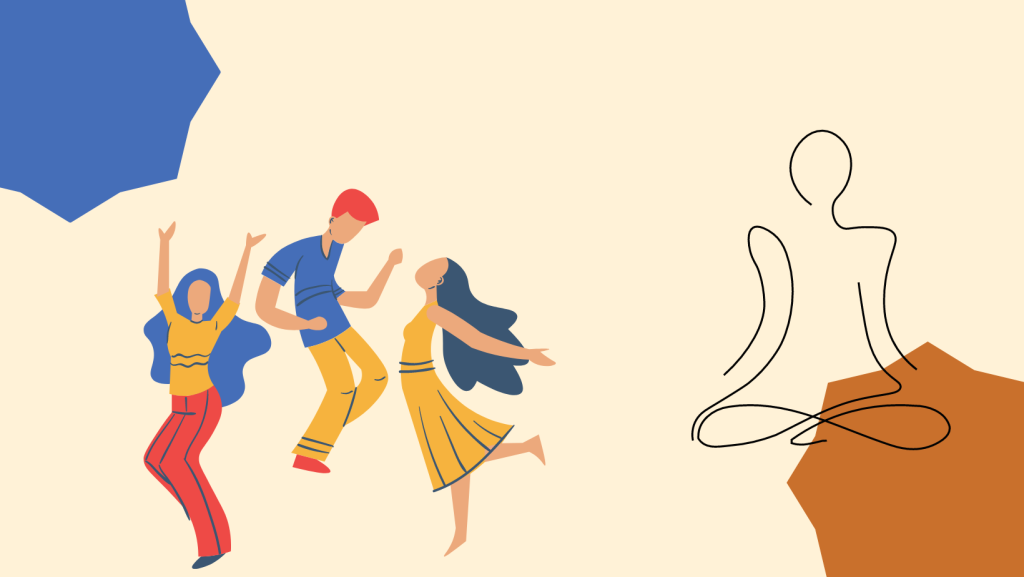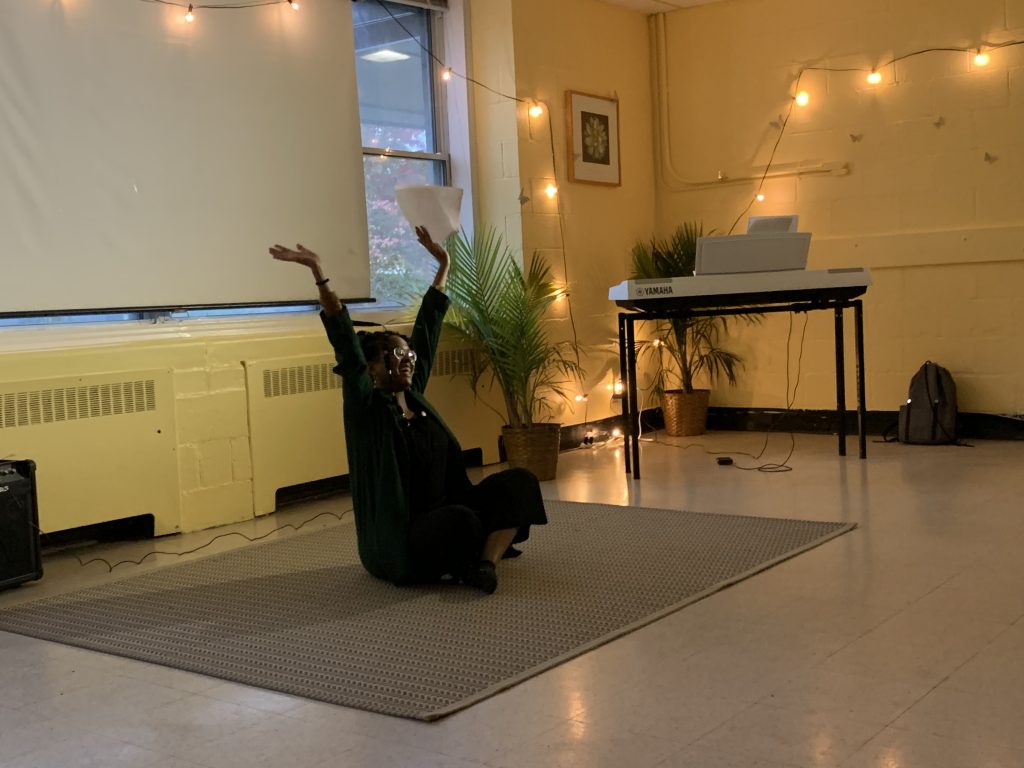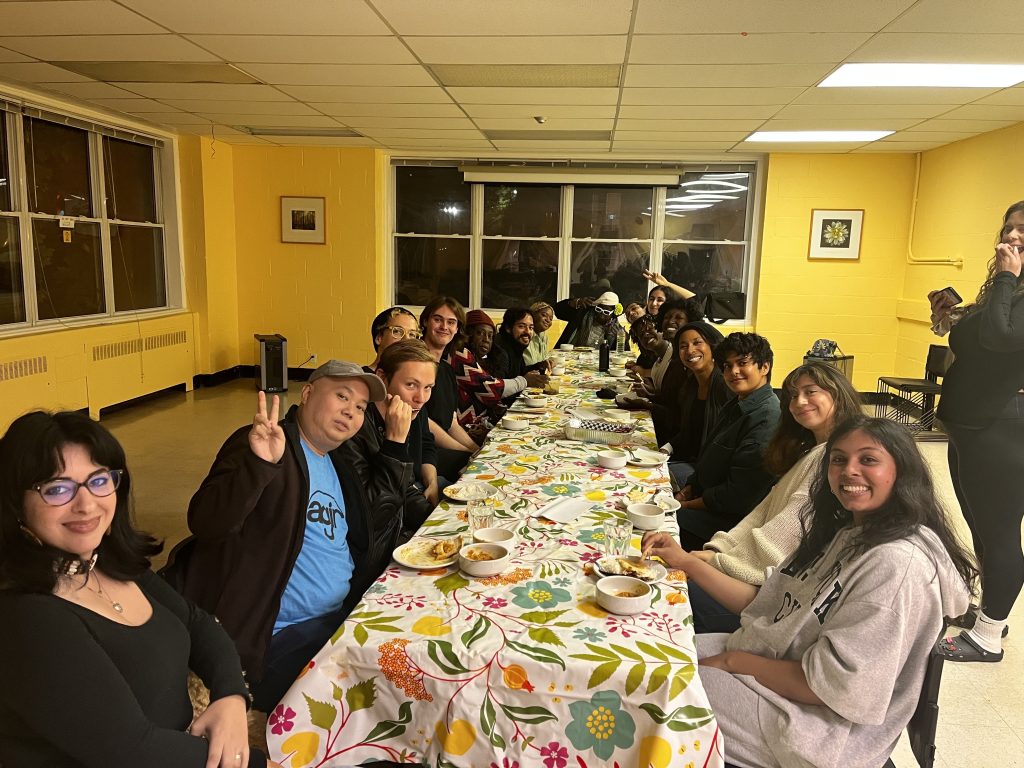Article written by Florencia Lazcano in collaboration with the Carrefour jeunesse-emploi Montréal Centre-Ville
This piece was submitted to the Citizen Journal project of the Peter-McGill Community Council. Please note that the opinions expressed in these articles do not necessarily reflect those of our organization. This project aims to create space for the voices of residents, students and friends of the neighbourhood through articles, photos, videos, and podcasts in any language. Are you interested in contributing? Contact us at benevolat@petermcgill.org !

September marks a month of transition as we bid farewell to the warmth of summer and welcome autumn’s chills. To make this transition a little more bearable for those who long for the sun, the beach, and the great outdoors, Centre Greene organized an extraordinary workshop called Shared Dreams.
Shared Dreams, as the name suggests, brought together approximately 15 participants who, step by step, merged their visions, talents, and aspirations to create a collective masterpiece. After a month of weekly meetings, dinner included, their creation was showcased to the public, symbolizing the power of unity and collaboration.
Centre Greene, nestled in the heart of Westmont, serves as a vibrant community center that invites people from all walks of life to join and participate in various activities. From writing and sports to painting and more, the center offers multiple programs suitable for individuals of all ages, from kindergarteners to seniors. It also extends its reach to immigrants, providing them with a platform to express themselves and share their cultural heritage.
The center’s after-school programs, comprising Zumba classes, tai chi for elders, self-defence workshops, English conversation circles, and guest artist sessions featuring poets, storytellers, and painters create an inclusive environment that promotes growth and learning. Additionally, the center hosts arts and crafts fairs on special occasions, allowing local creators to showcase their crafts to the public.
One such event that exemplifies Centre Greene’s commitment to inclusivity and community engagement is the Shared Dreams workshop. As a participant in this workshop, I arrived with little knowledge of what to expect, drawn solely by the intriguing name. From the very first day, the atmosphere was warm and inviting, with individuals from mixed backgrounds forming a circle of unity. Facilitators Sean and Prerna skillfully orchestrated activities that not only brought us closer but also allowed us to gradually understand and connect with one another, like pieces of a puzzle.
Among the various activities, one stood out. We were placed together in silence, the rhythmic breathing of fellow participants serving as our only soundtrack. Prerna initiated a simple meditation, guiding us to connect with Mother Earth. In this transformative exercise, we envisioned ourselves as seeds, growing into trees and intertwining our roots until we became one. This activity served as the motivation that brought our collective roots together, revealing that our shared desire for unity was the common thread that bound us. It was this unity that we pursued.
The tree, the seed, the roots, the flowers – each held profound significance. As Prerna spoke with her inviting and calm voice, we were transported into a vivid dream that connected us all. From this transformative experience, the main idea for our showcase was born. Some participants chose to express themselves through dance, while others sang or wrote poems that were read aloud and sung by fellow participants. Individual talents were showcased through monologues that evoked both thought and laughter.
To conclude the showcase, everyone joined to accompany one of our own in a soul-stirring gospel-style song. The audience, moved by the display of human compassion,clapped along and added their voices to the chorus. In a world plagued by rivalry and war, this served as a poignant reminder of the power of empathy and kindness.
It’s important to highlight the significance of community activities, such as those organized by Centre Greene, for immigrants. These activities provide a safe space for newcomers to express themselves, share their talents, and celebrate their cultural heritage. They offer a sense of camaraderie, helping immigrants integrate into their new surroundings.
Interview with Sean Ryan, facilitator and coordinator of Shared Dreams:
FL: What took you to create this workshop?
SR: Teesri Duniya Theatre was approached by the Centre Greene, who were looking to expand their ACT program, a multidisciplinary community centered arts program catered towards BIPOC and LGBTQ+ folks. Prerna and I were asked to lead the acting and writing section of this program and began to design a class that took a community centric approach to performance. Thus, Shared Dreams was born! The Centre Greene, like Teesri Duniya Theatre, focuses on making decolonization an active practice. To approach this with honesty and integrity, we reached out to a colleague of ours, Maddison Schmitt – a Metis artist with a particular focus on Indiginaty in relation to performance. Together, the three of us designed a workshop that placed emphasis on investigating our role on this land, building community, and nurturing and showcasing the unique perspectives of each of the participants.
FL: Were you surprised with the outcome and how the showcase turned out?
Throughout the process, we made sure not to place too much focus on the outcome/showcase. From experience, it is best when working towards a performance to place emphasis on the process over the product. Never losing sight of the fact that we had an outcome, we decided to frame the culmination of our workshop as a sharing of where the work got to, instead of imposing on the group a set of expectations for what we had to create. With this framework in place, we were able to remain in the exploration, keeping us true to ourselves and to our individual artistic practices.
That being said, the outcome was AWESOME! Each participant brought something uniquely them into the room. The showcase had multiple individual and group segments, from performances of published songs, to guided movement explorations, original monologues, poems, and songs, and a sharing of a song very dear to one of our participants’ hearts. The quality of the work and the vulnerability expressed by each participant is something I will carry with me for a long time to come.
FL: Is this your first time offering this kind of workshop?
SR: I am teaching an acting workshop at the moment at Concordia University, but the scope of the class is quite different, so Shared Dreams was very much a new experience for me!
The Shared Dreams workshop was a space catered towards new arrivals, refugees, immigrants, BIPOC, and LGBTQ+ folks. Creating a “safe space” that was not only safe in word but in practice was a wonderful exploration for me as a facilitator. We started our workshops by creating a community agreement amongst ourselves, outlining the behaviour that we all expected while together in the room, in order to cultivate a space where we felt comfortable to share personal stories and make mistakes, without fear of judgment.
Perhaps my key takeaway was that we need to listen to one another actively. This means being open to having difficult conversations and being willing to put in the energy to see things from another person’s point of view. We all have a perspective that is worth listening to, and it is my belief that Shared Dreams create a space where we could explore that together.
FL: How do you think this kind of activity changes people’s minds/lives?
SR: I like to believe that this experience has shown everyone involved that, though difficult sometimes, everyone has the right to speak, to share, to create, and to dream.
I hope this workshop has provided folks with some tools and tricks to approach art making.
I think that over the course of the Shared Dreams workshop, we have made connections, developed friendships, and cultivated community. I watched and experienced everyone bonding together over art and over a meal- and to me, there is nothing more beautiful than being able to share these two things with one another.
FL: Do you think art is an essential part of people’s life? Is art an excuse to bring people together?
SR: If food and water feed the body, then art feeds the spirit!
I am of the belief that both are best created and shared in community, and though they nourish us in different ways, both are integral to life. Both art and food are extremely personal- they connect us to our families and our cultures, representing humanity in its truest form. Thanks to the Centre Greene, every Tuesday for two months, we were able to provide this, nourishing both the body and spirit! I am deeply grateful to everyone involved in this process, from administrators, to participants. Something beautiful was created here and I am humbled to have been able to be a part of it!


Visit the Center Greene page for informations about future workshops and events: